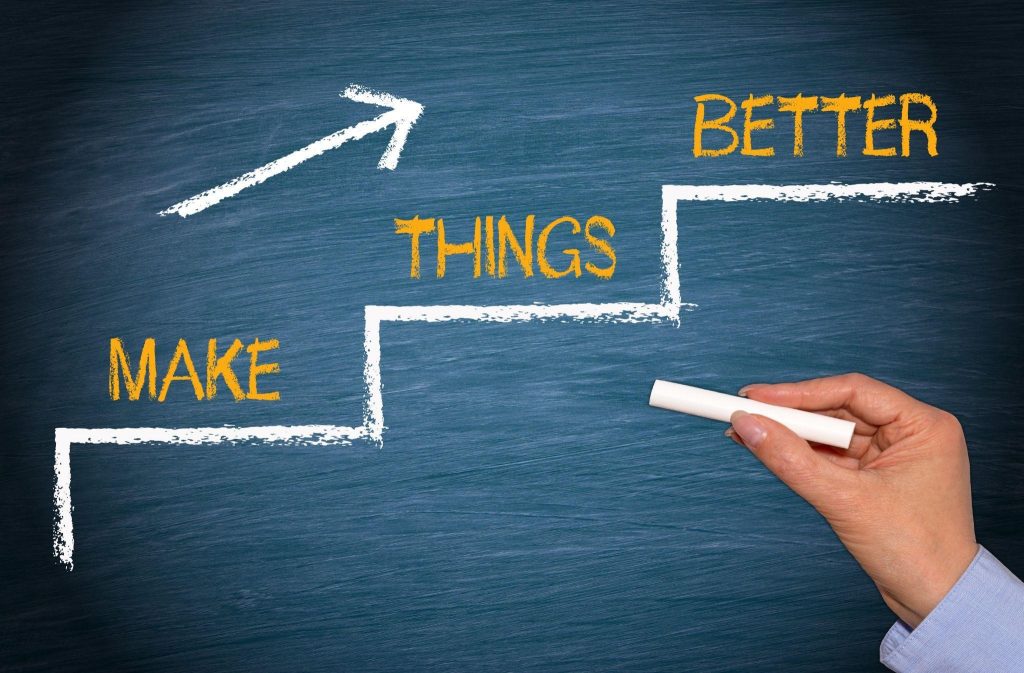THE WORLD’S #1 EXECUTIVE COACHING AND BUSINESS COACHING BLOG SINCE 2017.
Diversity & Inclusivity Leadership Development
Published On: March 29, 2025 | Last updated on: November 24, 2025 | Author: John Mattone | Category: Blog, Intelligent Leadership

Diversity, equity, and inclusion (DEI) have become powerful drivers of organizational success. This is not simply a matter of corporate responsibility—it’s a strategic necessity. Research from sources such as McKinsey and BCG consistently shows that companies embracing DEI outperform their peers financially, foster greater innovation, and build stronger, more engaged teams.
Not every leader naturally embraces this. Some see it as a soft initiative, disconnected from the hard numbers of business performance. However, the evidence is clear when we look at the data and evaluate the real outcomes of organizations that foster a diverse and inclusive workplace.
Organizations with diverse leadership teams are more agile, make better decisions, and generate significantly more revenue from innovation. Companies with employees from diverse backgrounds with greater gender and ethnic diversity in executive roles are also far more likely to exceed their financial targets.
Beyond financial performance, inclusive workplace culture attracts and retains top talent. Younger generations—Millennials and Gen Z in particular—actively seek out diverse workplaces and are more loyal to companies where they feel seen, heard, and valued. Inclusive environments foster trust, psychological safety, and collaboration, which in turn fuel productivity and long-term growth. Some global companies have even reported increased market penetration and improved customer service as a direct result of inclusive initiatives.
Developing Inclusive Leaders: The Strategic Power of Leadership Programs
Leadership development programs that teach executives how to cultivate a more inclusive environment, strengthen their decision-making, and lead diverse teams are not just “nice to have”—they are strategic investments. These programs help leaders align their inner core (character, values, beliefs, self-concept) with their outer core competencies (critical thinking, decision-making, communication, etc.), producing tangible, measurable outcomes in innovation, employee retention, market growth, and financial results.
Coaching professionals help organizational leaders build environments where success becomes inevitable. Intelligent leaders understand that building an inclusive culture is not a distraction from business results but a pathway to them.
When leaders do the inner work to mature emotionally, ethically, and strategically—while mastering the outer behaviors that shape culture and team performance—they become the architects of organizations that sustain growth, attract top talent, and thrive in complexity.
Leadership builds organizations. And when leaders evolve, organizations transform.
Simply put, inclusive leadership isn’t just good ethics—it’s good business. But while diversity can be hired, inclusion must be led. And that requires a new kind of leader – an intelligent leader with the character, courage, and maturity to cultivate cultures where everyone belongs.
Benefits of Inclusive Leadership
Organizational performance and individual employee happiness are inextricably intertwined. Only happy, empowered employees can gain genuine psychological ownership of organizational goals. That explains why inclusive leadership is beneficial for organizations in so many ways:
- Innovation. Inclusive organizations are more innovative and open to change. The diversity of perspectives they harness allows them to identify better and exploit emerging trends.
- Employee engagement and empowerment. An inclusive organizational culture allows employees to make meaningful contributions and thus gain psychological ownership of the organization’s values and objectives.
- Better decisions. Employees who feel they belong to a community bring a multitude of diverse perspectives to the table. They contribute alternative ways of thinking, expanding their leaders’ ability to think outside the proverbial box.
- Talent retention. Employees are less likely to leave a community where they feel they belong. Employee empowerment and genuine engagement trump higher pay.
- Teamwork and collaboration thrive in an inclusive environment. In this environment, people are more likely to assume ownership of common goals, and where people want to achieve common goals, collaboration and teamwork thrive.
- Reputation and image. People appreciate emotionally intelligent, forward-looking, and inclusive organizations. A positive public perception can give a brand a significant practical boost.
Under CEO Satya Nadella’s leadership, Microsoft took significant steps toward inclusivity and diversity. Addressing issues from parental leaves to unconscious bias, the organization emerged as one of the most innovative and competitive tech companies, maintaining its global trendsetter status.

Inclusivity boosts organizational performance.
Defining Inclusive Leadership
Inclusive leadership is about leading with authenticity, character, and emotional intelligence to create an environment where everyone feels valued, heard, and empowered to contribute regardless of background, identity, or perspective. It is not a function of corporate policy; it directly reflects a leader’s inner core strength and outer core capabilities and strives to provide equal opportunities for professional advancement and personal growth.
At its core, inclusive leadership is the intentional effort of a leader to cultivate a space where diverse voices are not only welcomed but eagerly sought out and meaningfully integrated into decision-making and innovation.
As a leadership coach, I would define the core tenets of inclusive leadership as follows:
- Understanding the value of diversity. Inclusive leaders recognize that diversity brings fresh perspectives, fuels innovation, and strengthens decision-making. They actively seek out and appreciate differences in thought, background, and experience.
- Knowing the difference between diversity and inclusivity. Diversity is about representation; inclusivity is about creating an environment where diverse individuals feel respected, involved, and empowered to contribute. Inclusive leaders ensure that diversity is not just present—but impactful.
- Fostering a sense of belonging. Leaders create a culture where everyone feels seen, valued, and accepted as part of the team. Belonging enhances engagement and strengthens trust across the organization.
- Empowering people. Inclusive leadership is about creating opportunities for others to grow, lead, and shine. Empowered employees are more confident, innovative, and invested in organizational success.
- Prioritizing trust and respect. Mutual respect and psychological safety are the cornerstones of inclusive environments. Leaders earn trust by being consistent, fair, and transparent in their actions and decisions.
- Embracing change. Inclusive leaders are open to change and willing to challenge outdated assumptions. They see change not as a threat but as a catalyst for growth and transformation.
- Leaders lead by example. They model inclusive behaviors through their language, decisions, and interactions. They demonstrate the values they wish to see in others and hold themselves accountable.
- Encouraging open dialogue and feedback. Inclusive cultures thrive when leaders invite honest conversations and listen actively. Feedback is seen as a tool for learning, not criticism.
- Celebrating accomplishments. Recognizing individual and team achievements fosters morale and reinforces a culture of appreciation. Inclusive leaders celebrate both performance and progress.
Traditional leadership tends to treat people as production tools, deeming individual perspectives superfluous. Inclusive leadership is intelligent leadership. It celebrates diverse perspectives and derives concrete and subtle organizational advantages from them.

The Role of Inclusive Leaders
Leaders set examples and trends and create cultures based on their organization’s purpose and values. They can shape organizational cultures, including those related to inclusivity and diversity.
Some inclusivity-defining leadership behaviors and characteristics are:
- Open-mindedness. Inclusive leaders are receptive to change and new ideas. They value others’ contributions regardless of their backgrounds, identities, and perspectives.
- Empathy. Leadership empathy is one of the cornerstones of inclusive leadership. Only leaders who put themselves in others’ shoes can truly understand their employees.
- Active listening. To understand someone beyond empathy and emotional intelligence, a leader must be able to listen to concerns, ideas, and contributions and understand the emotions and intellectual processes that are their sources.
- Proactivity. They understand that, as the primary molders of organizational cultures and consensus, they are responsible for intentionally promoting inclusivity and diversity.
- Courage. Intelligent leaders know that they must challenge the status quo in their efforts to facilitate inclusivity, and they don’t hesitate to do so.
- Accountability. Accountability and promptness are essential for shaping behaviors and effecting lasting change.
Walgreens Boots Alliance CEO Rosalind Brewer built her leadership around diversity and inclusivity. She sought to address racial and gender disparities in her organization’s leadership ranks, and her diversity-focused efforts were shaped by effective mentorship initiatives and training programs.
Intelligent Leadership and the Inner Work of Inclusion
Every intelligent leader is privileged to create an organizational culture of inclusivity and push for diversity. Here are some practical steps you can take in this sense:
- Establish clear diversity and inclusivity goals. Ambiguity is the enemy of action. Clarity tells people what to do to align with their organizations’ diversity and inclusivity values. Clear goals also allow leaders to hold themselves and others accountable.
- Diversity training and education. People may need education to identify and defeat their unconscious biases and tendencies to judge others.
- Diverse leadership intentionally creates opportunities for underrepresented voices to contribute to the discussion. Although they may struggle to contribute effectively, diverse leadership tries to give these voices a stage and allow them to share their unique perspectives.
- Foster open communication. Open communication facilitates the exchange of ideas and creates a safe space where people feel encouraged to contribute and make a difference.
- Celebrate diversity. Diversity celebrations can take different forms. Inclusive organizations may celebrate employees’ accomplishments with different cultures, identities, and perspectives and incorporate the theme of diversity into their branding.

Diversity makes us stronger.
Multinational consumer goods company Unilever implemented several initiatives to facilitate and celebrate diversity within the ranks of its employees. One such initiative was the “Unstereotype” campaign that targeted the organization’s marketing campaigns.
The company also runs inclusion-supporting programs for women, minorities, and underrepresented voices.
Measuring Progress and Accountability
“You can’t manage what you can’t measure.” – Peter Drucker.
To manage organizational inclusivity and diversity, leaders must find metrics and methods to measure their progress.
How can you assess the inclusivity of your organization? Here’s a selection of qualitative and quantitative metrics you can use:
- Pay equity. Consider variables like the gender pay gap and racial pay equity.
- Diversity-related variables. Hiring and promotion rates, workforce diversity, and leadership representation.
- Employee satisfaction. You can use surveys to determine your employees’ level of engagement and satisfaction.
- Employee retention. Use exit interviews with employees leaving the organization to identify potential pain points and gaps in satisfaction.
- Evaluation fairness. You can analyze your organization’s performance ratings by demographic group to spot possible biases and skewed results.
- Supplier diversity. Determining the procurement percentages your organization allocates to different suppliers is relatively straightforward.
Accenture, a global consulting services company, implemented diversity-focused programs and consistently tracked its diversity outcomes. It monitored the participation and representation of women, LGBTQ individuals, ethnic minorities, and other demographic groups at every organizational level.
Relying on the data it collected when assessing the efficacy of its programs, the company fine-tuned its approach to diversity, improving its metrics and bottom line and earning many accolades.
Coaching for Inclusive Leadership
Inclusive leadership doesn’t happen by chance—it results from intentional development rooted in character, courage, and a deep commitment to growth. At John Mattone Global, we believe that becoming an inclusive leader begins with the inner journey: strengthening one’s values, mindset, and emotional maturity. This is the essence of Intelligent Leadership.
We help executives move beyond theory and into transformative, sustained action. Our coaching is designed to equip leaders with the inner strength and outer competencies necessary to foster a more inclusive environment where all voices are heard, valued, and empowered to contribute.
We guide leaders to:
- Strengthen their inner core by cultivating empathy, humility, integrity, and self-awareness, which are the traits that form the foundation of inclusive leadership.
- Build outer core leadership competencies, such as cultural intelligence, communication skills, strategic thinking, and the ability to lead across differences in a diverse workforce.
- Develop leadership maturity, which enables leaders to recognize unconscious bias, navigate difficult conversations, and make inclusive decisions with confidence and clarity.
- Shape inclusive cultures by modeling inclusive behaviors, creating equity systems, and ensuring all team members feel a true sense of belonging.
A diverse workforce thrives only when leaders actively create environments where differences are celebrated, and inclusion is the norm. Intelligent Leadership Executive coaching is an inclusive leadership development program that enables a mindset shift and prepares leaders to build organizations where everyone can do their best work, innovation flourishes, and leadership legacy is defined by impact.
If you’re ready to lead with purpose and build a more inclusive environment where people and performance thrive, John Mattone’s Intelligent Leadership Executive Coaching can help you begin the journey from awareness to action, from good intentions to lasting impact.
Schedule Your Free Discovery Session today and take the first step toward transforming your leadership, empowering your team, and creating a culture where everyone belongs and contributes at their highest potential.


